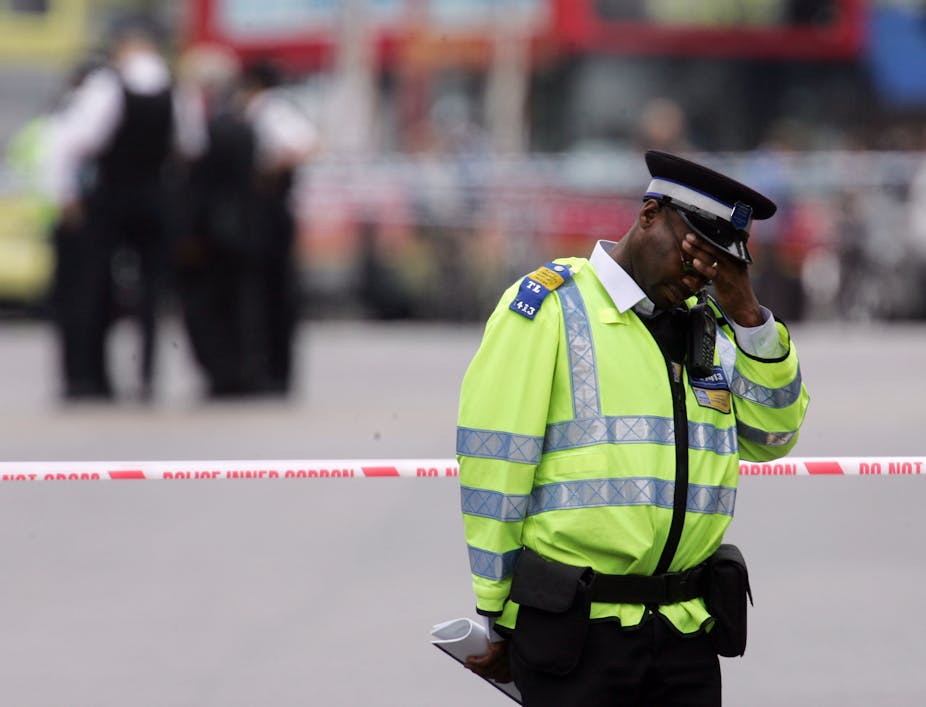For 22 years the Stephen Lawrence murder has returned to pose critical questions about policing in England and Wales, questions that go far beyond the specifics of the investigation of the murder – the latest being allegations that corrupt Metropolitan Police officers shielded suspects who were eventually prosecuted for the murder.
When, in 1998, I was asked by the erstwhile Commission for Racial Equality to write their evidence to the Lawrence Inquiry I had little idea that the case papers I read were of such lasting importance. The large file of official papers certainly demonstrated clearly that officers dealing with the case had been incompetent in the extreme.
Central to their failures was, despite clear evidence to the contrary, an inability – deliberate or unwitting – to recognise that Stephen Lawrence, a black British 18-year-old school student, was murdered for one reason and one reason alone: he was black. His murder was racially motivated – something the officers working on the case and, perhaps even more extraordinarily, senior officers who investigated subsequent complaints by his parents refused to admit.
It was and remains the concerted campaigning of Stephen’s parents, Neville and Doreen Lawrence, that probed and to some extent revealed the truth of what happened when the Metropolitan Police investigated their son’s murder.
Hate and race crimes
The working definition of crimes motivated by racial discrimination has been scrutinised and sharpened. Minority ethnic victims have stronger foundations of law and policy on which claims to being subject to what is now called hate crime are made. Indeed, race is now just one of a number of criteria defining crimes motivated by discrimination.

Neville and Doreen Lawrence have drawn international attention to racial inequalities of police work. Their son’s murder led to academic research and action by community groups about racial disparities in the use of stop-and-search powers. Work to ensure the equitable use of stop-and-search powers is still being undertaken and policing’s professional body, The College of Policing, is currently working to design adequate training and standards of service for this area of police work .
Race inequality was not just found in the way populations are policed. After Lawrence, black and minority ethnic police officers began talking about their experiences of racial prejudice and discrimination within the police. The Lawrence case has led to hugely increased confidence to speak about inequality, to form related police associations and, independent of formal police policy, form links with minority ethnic groups.
Institutional racism
The official report into the police investigation of the Lawrence murder, the Macpherson Report, described the Metropolitan Police as institutionally racist. That analysis provoked dismay among officers who interpreted it to mean that they, as individuals, were racist. That misunderstanding remains and there is reluctance within constabularies to talk about issues for fear of being cast as a racist.

Racial inequalities have been translated into rhetoric about problems of “diversity”, “cultural competencies” and “unconscious bias”, masking the true extent of the problem. The notion of institutional racism certainly needs to be subjected to critical questioning by the police and by academics. But tackling that problem shouldn’t mean the police should shy away from thinking about how their policies and practices lead to racialised inequalities. And it certainly does not mean that officers should not talk about the problems of policing black and other minority ethnic populations, fearful they will make a mistake and be dubbed a racist.
Suspicions about racial prejudice and discrimination are deep rooted and, although it is recognised that overt racism has diminished very significantly, there is real concern about “covert racism”. The institutional memory of racism within the police is powerful and sustained by officers’ continuing suspicions and direct experiences of subtle (and at times not so subtle) forms of race prejudice and discrimination.
Fair cop?
The National Police Crime Agency is about to begin an investigation into Doreen Lawrence’s complaint that corrupt officers were involved in the investigation of her son’s murder, committed 22 years ago. That inquiry draws together themes of the institutional memory of racism, which is not just relevant to black and ethnic minority police officers but to the black and minority ethnic populations of the UK.
The Stephen Lawrence murder was racially motivated – it drew public attention to prejudice within the police and, to some extent, more widely within UK society. A clear, public memory of police inability to address problems of race relations adequately is revived and sustained every time Doreen or Neville Lawrence reveal further police failings in the investigation of their son’s murder. After 22 years, the Lawrence case is not yet fully investigated.

